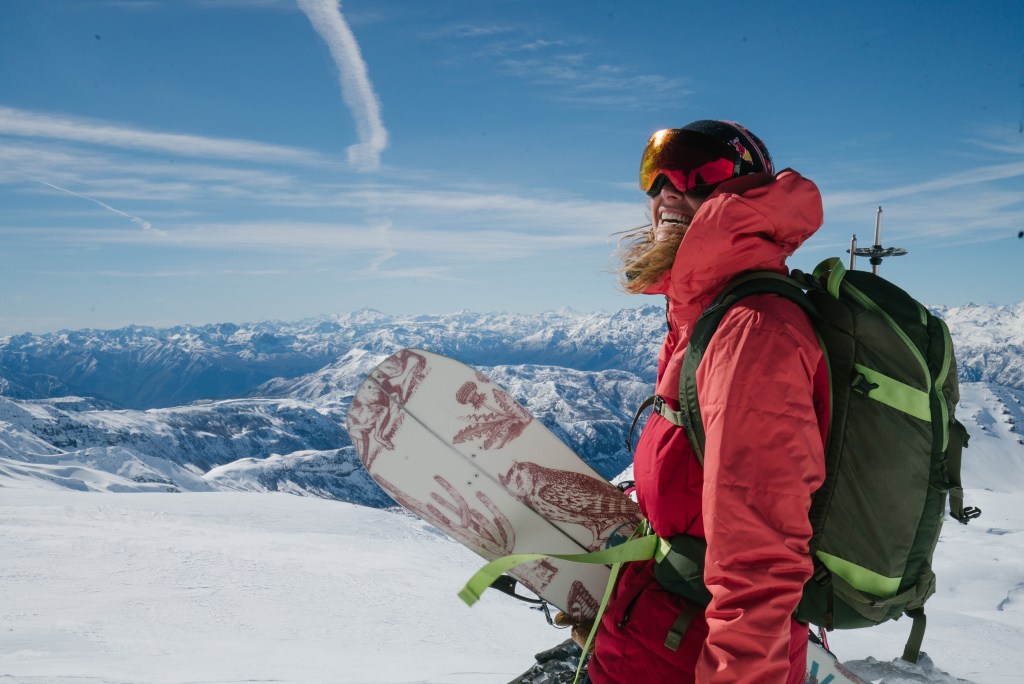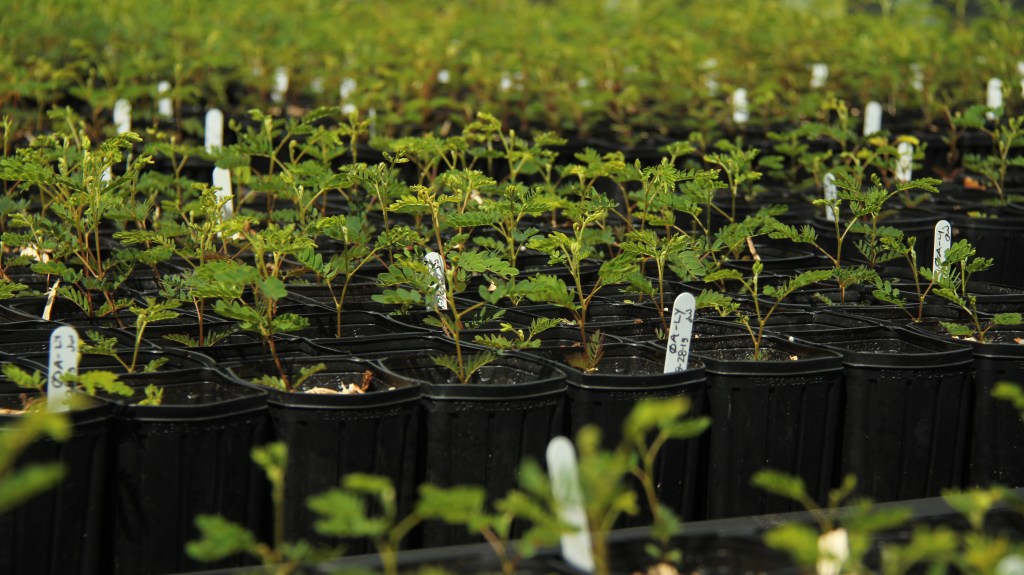The gulf between snowboarding and environmentalism has been vast—even though the board community relies heavily on the environment. Over the last decade, snowboarding initiatives like Protect Our Winters gained steam, but the tie between boarding and environmentalism haven’t always there.
The Arbor Collective, a California-based snowboard and skateboard company, and its athlete Marie-France Roy are helping close that gap. We sat down with Marie to take a closer look at what sustainability looks like in the snowboarding community. She shares her personal journey and offers tips on how every boarder can be more eco-conscious.
Marie-France Roy’s Journey
“Ever since I was a kid I was playing outside with bugs. I could tell from a very young age that the effect of humans on the environment was really big. I realized that even before I knew the word pollution,” Marie said.
She fell in love with riding at 11, never thinking she would make a career out of boarding. She earned a degree in ecology and interned at the Vancouver Aquarium. She thought: “I’ll get a real job, but I’ll spend a year in Whistler, BC before life gets serious.” She moved to Whistler, started entering snowboard contests and, “all the sudden I had a snowboard career,” she said. Only a year after her move Marie had a sponsorship, and kept chasing contests, winning awards and filming snowboarding flicks.
As she progressed in her field, she came to a breaking point: Snowboarding for a living was taking a toll. She started feeling guilty for traveling all over the world because she knew she was having a huge impact on the environment. She considered quitting the sport altogether.
“My heart was telling me ‘We need to make changes,’” she said.
Photos courtesy of Sean Black.
She quickly realized that if she quit her career and lived in the woods, she’d still need a vehicle, electricity and food from farms far away. And perhaps, she started thinking, she could have more of an impact by being in the public eye and sharing her message. “It was smarter to use my platform to educate and spread the word than to quit altogether,” she said.
That’s how her film The Little Things came to be. It is a snowboard movie following environmentally-conscious riders who ride, live and think differently. Marie featured snowboarders that were working toward educating others and making a difference in the environment, like building their own homes, creating their own sustainable companies and lobbying for change on Capitol Hill. Because, as she said again and again, we can all make a difference.
The Arbor Collective
Marie’s journey mirrors that of the Arbor Collective. Bob Carlson, a surfer who truly loves board sports, started the company in 1995. For 22 years, Marie said, Arbor Collective worked to make snowboarding and skateboarding more sustainable. And for most of that time, the snowboard industry scoffed. Yet Arbor never let go of its mission—to merge performance with craftsmanship, always keeping a meaningful commitment to the environment.
It was a match meant to be. In 2015, Marie was looking for a brand that aligned with her values. She admired Arbor’s work. “If there was any company I’d join, I was thinking it was only Arbor,” she said. And, happily, they agreed.
She was so proud to be the first female snowboarder on the team. “I think it’s changed so much. It used to be girls trying to look like the guys. [Now] the whole industry is embracing the grace of female sports,” she said.

Photo courtesy of Sean Black.
Since the very beginning, Arbor has been committed to building boards with sustainable materials: choosing bamboo, ash, poplar and other quick-growing plants. Traditional boards use potentially-harmful fiberglass and board wax made with perfluorochemicals that can leave traces in the snow.
Through its Returning Roots program, Arbor also donates a portion of everything it sells to the Hawaiian Legacy Reforestation Initiative, a group that protects and restores forests. These donations primarily help preserve the Koa forests in Hawaii, which gave birth to the first surfboards, nearly 1,000 years ago. The Hawaiian Legacy Reforestation Initiative has planted more than 300,000 Koa trees on 800 acres, plus all the native understory plants necessary to rebuild a forest, in part thanks to Arbor donations.
It’s easy to talk about the theoretical benefits of sustainability and snowboarding, but Marie has some practical tips to make your season a bit better for the planet.

Returning Roots seedlings, courtesy of Hawaiian Legacy Reforestation Initiative.
Marie’s Tips to be a Greener Boarder:
“Society has become so critical of this green wave that a lot of people are scared to take action. Don’t be afraid not to be perfect. We all have an impact. We’re all part of the problem from the moment we’re born. But it’s time to come together to do whatever we can. We’ll make a lot of mistakes, but the time is now and we have no time to lose,” she said.
- Make ethical purchases: Support gear companies with strong environmental initiatives that use ethical, sustainably sourced materials, such as bamboo, recycled fabrics, ecofriendly wax and more. Learn more about how to choose sustainable clothing and gear.
- Choose ski resorts wisely: Ski resorts’ initiatives can make a massive impact too. Do your research. Whistler Blackcomb, for instance, has done some major work to improve its footprint, like building its own micro hydro energy plant, which offsets its annual energy use.
- Repair, donate or sell used gear: There’s always someone who will be really stoked to get free or cheap stuff. And anything is better than the trash. At a loss? Start with our Used Gear site.
- Explore your own backyard: Instead of heading to far-away locations, stay close to home. Try splitboarding. It’s an amazing workout.
- Offset your travel: Of course, there are always those epic destinations we want to board. Carpool and reduce travel when possible. And buy a carbon offset for all your transport—some airlines allow you to buy offsets as you purchase your flight. If not, you can buy offsets through other organizations (just do a little research).
- Don’t be a hater: When someone takes an initiative, even if it is not a 100 percent perfect or green, at least it is a step in the right direction and it should be encouraged.
Marie’s Favorite Sustainability-Built Arbor Boards:
Built with sustainably grown cores and topsheets, these boards are equal parts performance and eco-conscious. Marie has two boards she rides and loves:
- Arbor Cadence Rocker: Find your rhythm with this freestyle-oriented board, perfect for women who love all-mountain riding. Soft flex makes turning effortless and learning tricks easy. Plus, it’s made from a sustainably grown poplar core and quick-growing bamboo topsheet. “Marie says it’s “super soft. If you’re starting to board, it’s so forgiving and has a fun pop and good play in any kind of condition. It adapts to everything.”
- Arbor Swoon Rocker Splitboard: Featuring a reclined rocker system for enhanced climbing performance, it delivers a surfy feel to women who want to float through backcountry powder. As always, the board uses sustainable materials: a single malt, sustainably grown poplar core and ash power ply topsheet—another quick-growing tree. Marie uses the Swoon for the backcountry, “because it’s powder oriented. I love the split board. It doesn’t feel like a different board from what I’ve been riding.”


